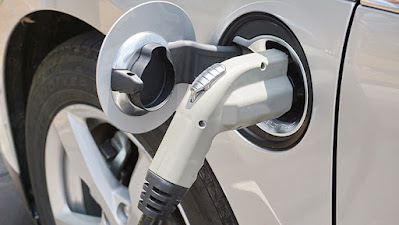Plan to cut statewide fuel emissions 20% starts January 1, 2023
Monday, November 28, 2022
 |
| Photo courtesy Dept of Ecology |
Over the next 12 years, the new standard will reduce annual transportation emissions statewide by 20 percent, or about 4.3 million metric tons of carbon dioxide equivalent.
That’s comparable to taking more than 900,000 cars permanently off the road.
The Washington Legislature passed the Clean Fuel Standard in 2021 and directed the Department of Ecology to implement the program beginning in 2023. Today, Ecology adopted the final rules for the Clean Fuels Program to meet that deadline.
The new Clean Fuels Program uses a market approach to incentivize fuel producers to reduce the “carbon intensity” of their products by 20 percent by 2034 – four years faster than first proposed. The accelerated timeline comes in response to strong public feedback and an independent economic analysis and fuel supply forecast that show 2034 is an achievable target.
California, Oregon, and British Columbia have adopted similar programs for transitioning to low-carbon fuels. Even before Washington’s program formally begins, fuel producers and energy suppliers have moved to increase clean fuels production. Most notably, BP America committed last year to invest $269 million to double the production capacity of renewable diesel at its Cherry Point refinery, near Ferndale.
More information here
The Washington Legislature passed the Clean Fuel Standard in 2021 and directed the Department of Ecology to implement the program beginning in 2023. Today, Ecology adopted the final rules for the Clean Fuels Program to meet that deadline.
“We have to make it easier for people and businesses to use cleaner transportation options,” said Washington Gov. Jay Inslee.
“The Clean Fuel Standard will jumpstart investments in low-carbon fuels, help expand our state’s infrastructure for zero-emission vehicles, and give consumers better choices as we grow our clean energy economy.”
The new Clean Fuels Program uses a market approach to incentivize fuel producers to reduce the “carbon intensity” of their products by 20 percent by 2034 – four years faster than first proposed. The accelerated timeline comes in response to strong public feedback and an independent economic analysis and fuel supply forecast that show 2034 is an achievable target.
California, Oregon, and British Columbia have adopted similar programs for transitioning to low-carbon fuels. Even before Washington’s program formally begins, fuel producers and energy suppliers have moved to increase clean fuels production. Most notably, BP America committed last year to invest $269 million to double the production capacity of renewable diesel at its Cherry Point refinery, near Ferndale.
“We’ve seen encouraging interest from businesses that want the opportunities clean transportation fuels will bring,” said Laura Watson, Ecology’s director.
“We’re excited to work with businesses and communities across the state on this new program, and to integrate it with our other climate policies, especially our zero-emission vehicles and cap-and-invest programs.”




0 comments:
Post a Comment